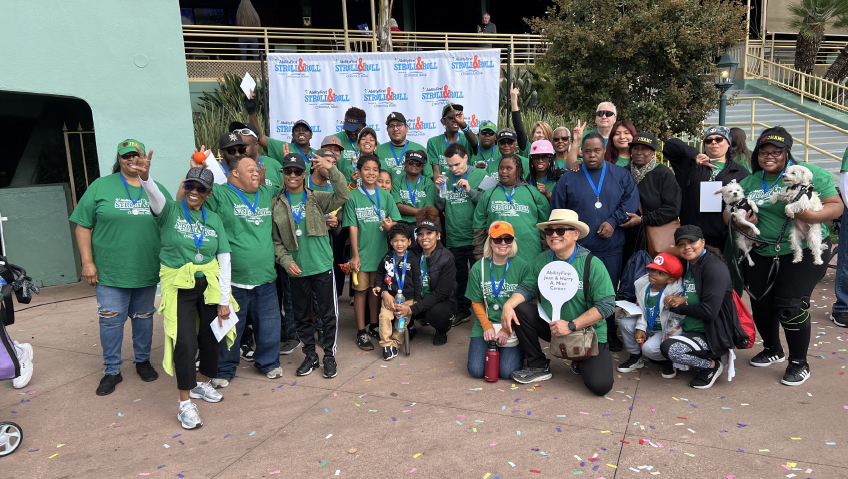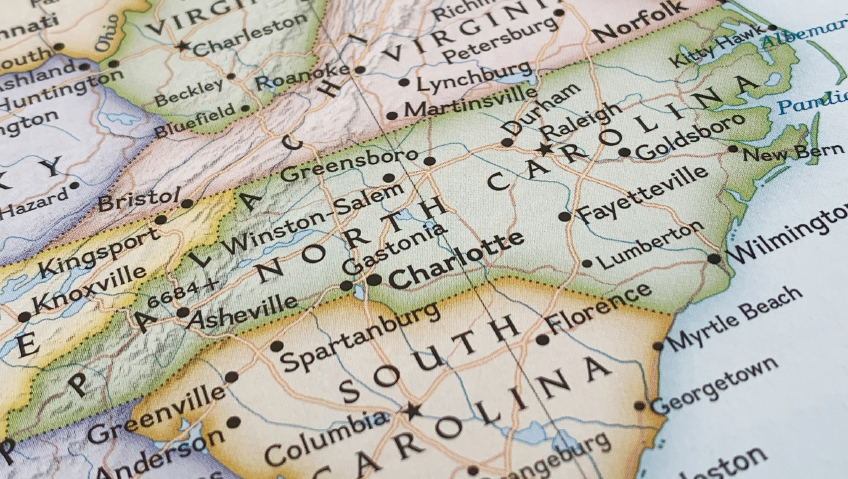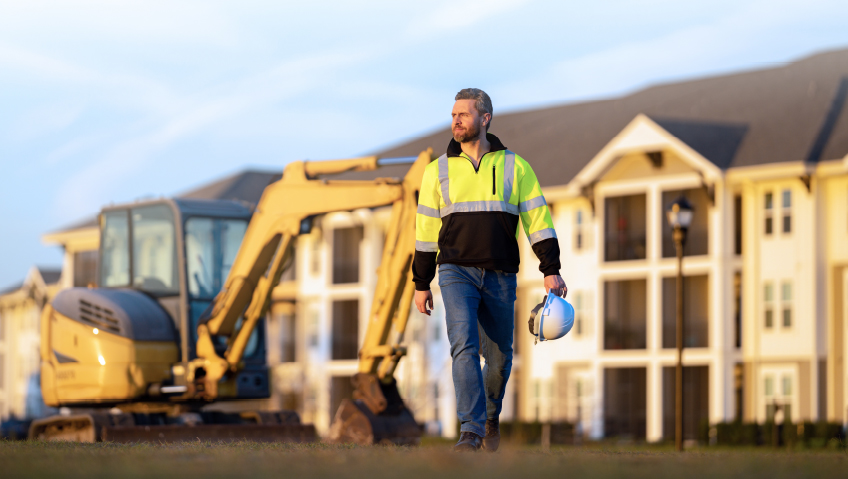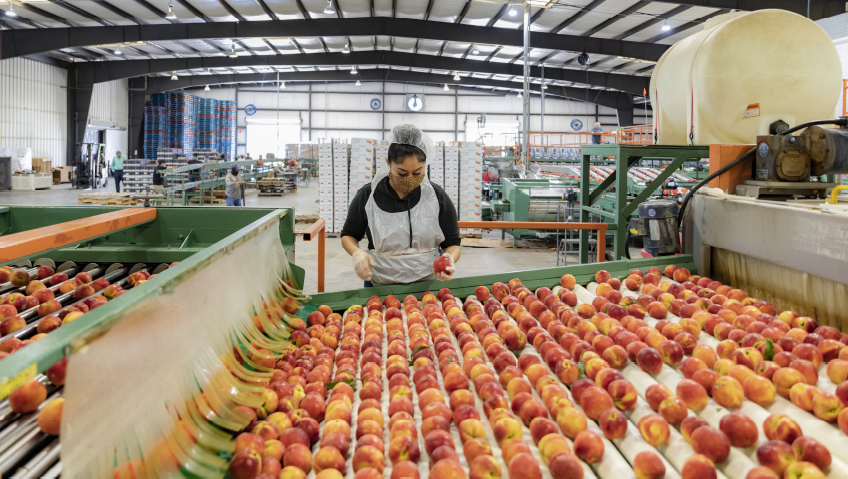For nearly a century, AbilityFirst has been a beacon of support, advocacy, and opportunity for individuals with disabilities in Southern California. Founded in 1926 as the “Crippled Children’s Society of Southern California” during the polio epidemic, the organization has evolved in tandem with the needs of the communities it serves.
As Keri Castañeda, COO of AbilityFirst for 12 years, shares, “We were created to address a lack of resources for children affected by polio, particularly in Southern California. Over time, as vaccines came into play and polio cases diminished, we redefined our focus to include children and adults with intellectual disabilities.”
Today, AbilityFirst has grown into a vital network that serves over 1,400 individuals annually across Los Angeles County and beyond. CEO Sergio Rizzo-Fontanesi, who joined the organization just six months ago, is already deeply impressed by its impact. “One of the things that struck me most was the commitment and tenure of our staff,” he says. “Some have been here for over 30 years, and that speaks volumes about the dedication to the people we serve and the quality of services we provide.”
AbilityFirst’s programs support individuals with developmental and intellectual disabilities from childhood into adulthood. Its services include after-school programs for children and teenagers, independent living skills, job coaching, and a fully accessible sleepaway camp nestled in the San Bernardino Mountains.
“We’re not just providing a service; we’re giving individuals the opportunity to achieve the life they want,” Castañeda says. “We work on everything from social skills and communication to independent living and building friendships. We even help people in their journey through college.”
For those in college, the organization provides tailored support, especially for individuals with autism, ensuring they have the tools and guidance needed to succeed.
AbilityFirst’s adult day programs are similarly person-centered, promoting meaningful community involvement, including guiding participants in setting personal goals and accomplishing them within a community setting. Whether it’s learning a new skill, finding a job, or simply enjoying time with friends, every program at AbilityFirst is designed to foster belonging and independence.
A defining element of AbilityFirst, according to Rizzo-Fontanesi, is the strong sense of team spirit among the staff. “When I first started, I noticed that our team didn’t just care about participant success; they genuinely want each other to succeed. There’s an unspoken understanding here that we’re all in it together.”
Castañeda echoes this sentiment, noting that AbilityFirst employees wear their empathy and dedication on their sleeves. “Our culture is about inclusivity, and it extends to everyone who walks through our doors, whether it’s a participant, a staff member, or a volunteer,” she says.
Throughout its history, AbilityFirst has adapted to meet the changing needs of its community. The organization evolved as polio became less prevalent and today, its scope includes a wide range of services for children, teenagers, and adults with intellectual and developmental disabilities. During the COVID-19 pandemic, for instance, Castañeda led an initiative to shift services to virtual formats, a move that continues to benefit families and participants who prefer online engagement.
“Our ability to reinvent ourselves is what keeps us relevant,” says Castañeda. “We continually assess our community’s needs and adapt to address them in meaningful ways.” Looking forward, AbilityFirst is preparing to launch a strategic plan in 2025, focusing on unmet needs and areas with high demand, such as East Los Angeles, where the Latino population is significant. The organization is exploring new services such as mental health support, occupational therapy, and physical therapy, all aimed at providing holistic, whole-person care.
AbilityFirst has fostered a culture of giving back within its programs, emphasizing volunteerism as a path to greater community integration. Participants volunteer with various nonprofits throughout Los Angeles, which provides them with a sense of community and purpose. This volunteer work not only provides participants with valuable skills for future employment but also challenges societal perceptions about people with disabilities.
As Rizzo-Fontanesi elaborates, “When individuals with disabilities volunteer, they show the community their capabilities, and they’re changing people’s minds about what they can do.” This approach serves a dual purpose: it empowers participants while fostering a sense of belonging and reducing stigma within the broader community.
With an anticipated growth rate of 16 percent next year, AbilityFirst is on a trajectory of expansion, not just in numbers but in the breadth of services offered. Much of its work happens directly within the community, as the team focuses on supporting participants in real-world settings, from job placements to volunteering.
“We’re looking at areas of high need and working to ensure our programs evolve to meet these needs,” says Rizzo-Fontanesi. “For example, our services might expand to include physical and occupational therapy, mental health services, and other essential support systems that address our participants’ full spectrum of needs.”
For AbilityFirst, disability is a part of the human experience. As Rizzo-Fontanesi explains, “We meet participants wherever they are on their journey, whether they need assistance with basic tasks or are navigating college and careers.” The organization’s programs cover everything from daily life skills to intimate topics like forming relationships.
“The goal is to create a truly inclusive environment where participants feel seen and supported,” says Castañeda. This approach is person-centered at its core, focusing on strengths and empowering individuals to define their own success.
At its heart, AbilityFirst isn’t just an organization; it’s a family. From the pioneering days of Camp Paivika, one of the first fully accessible camps for children with disabilities, founded in 1946, to the myriad of programs offered today, the organization has maintained its commitment to serving individuals with care, respect, and inclusivity. The organization has successfully grown and adapted through various phases of history, addressing challenges from polio to COVID-19. Throughout it all, its staff, board, and volunteers have remained committed, ensuring that they continue to serve the community with compassion and care.
AbilityFirst’s journey is one of resilience, adaptability, and unwavering dedication to its mission. It’s a place where every individual, regardless of ability, is given the tools and support to lead a fulfilling life. For AbilityFirst, it’s about recognizing each individual for who they are, empowering them to live the life they desire, and fostering a community that supports them throughout their journey.






